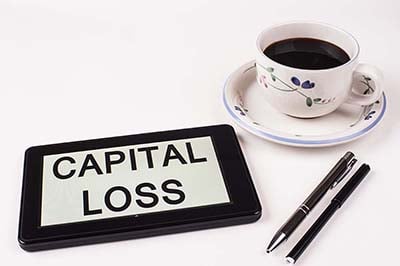“Our greatest glory is not in never falling, but in rising every time we fall.” – Confucius
Investing is a wonderful adventure. If done right, you get to understand so much about the economy, the stock market and the rules that move it. You’ll discover many industries as well as the main players that drive them, the CEOs who run these companies, their values and experiences. If you make good choices, you can even make good profits and sometimes even make a living out of it.
However, people like to talk about successes and big wins but there is one thing we too often leave aside: losses. Because yes – and there is no way around it – if you start investing on the stock market, there is a point where you will lose money. This is part of the game and it happens to everyone. Sometimes you will win, other times you will lose.
There are times where the losses are clear and immediate, such as when a stock plummets. At other times, losses are less evident and composed of many smaller losses.
Losses are an inevitable part of investing, and there is no going around it. However, you do have control over the way you take and react to these losses. This article will explore the different types of losses you may encounter and talk about how you can mitigate them and keep the right mindset in order to win in the long run.
Capital Loss
This is perhaps the most straightforward but also the most stressful type of loss. It is quite simple: you buy a stock with high hopes and cry while watching its price go down. When you cannot handle the decline anymore, you sell it, and the difference between the price at the time you bought the stock and the lower price at which you sell it is called capital loss.
There can be a positive side to a capital loss if it can help you lower your taxes on a capital gain. If you held the asset for less than a year, it will be called a short term capital loss. If you owned the asset for a year or more, it’s a long-term capital loss.

Opportunity loss
This one might be harder to see and identify. However, it is no less real than capital loss. Let’s say you bought $100’000 in a certain stock a year ago. After having doubled in price during the year, it suddenly dropped back down to the exact same price as when you bought it.
“Well, if I invested $100’000 and that my asset is still worth $100’000, I have not lost any money, did I not?” Wrong. Your cash was stuck in this investment for a year and you have not gained a penny out of it. You could have placed your money in an money market fund that would have given a small but still existent return on investment. With a 3% return, that would have been $3’000 profit for you. Those $3’000 are called the opportunity cost.
Opportunity cost always exists, the point is to minimise it. It happens whenever an alternative investment with the same level of risk, returns more than then investment you made. A way investors benchmark their investment is against a risk-free asset, typically a government bond. If the risk-free asset earned more than your investment, the opportunity cost was unacceptably high.
'Missed Profit' Loss
The missed profit happens when you watch an investment rise and fall back, without acting upon it. Make no mistake, it is not easy to spot the peak and to quickly act upon it. The money you could have made but didn't because you were too slow or waiting too long or being too greedy – is referred to as the 'missed profit' loss.
There is always the option to hang on tight and to wait until the stock get back up – as Warren Buffett recommends to never sell when the market is low – but the risk is this might also never happen. The stock might even keep going down, making you lose even more money. You should be careful and have an exit strategy – a target price you’re not willing to go below for example – which you can stick to in order to limit the damage.
Paper Loss
The stock you own goes down, but you choose not to sell it. Until the position is closed, have you really lost money? Well you have not lost cash, but this loss in nominal value is called a paper loss. Whether or not you consider this as loss or not, it is time for you to take a decision about your investment.
You could sell and limit the damage if you think the stock will keep going down. On the other hand, if you think the stock price will climb back up, it could be a great opportunity to acquire even more of the stock.

How to deal with your losses
The main rule of thumb is to stay calm and think things through. Nobody likes to take in a loss, but it is how you react to them that will determine your overall performance in the long run. Do not let your ego or instinct get in the way of your thinking. Often times, the best decision will be to cut losses and move on to another trade.
The best thing you can do with a loss is to turn it into a constructive experience that will make you a better trader. You learn by doing, and you will learn your most important lessons by falling. Here are a couple thing you can do to make sure you are capitalizing on your new experience.
1. Analyze your choices
First, compose yourself, find your calm again. If necessary, give it a night’s rest. Then, take a look at your decisions and try to see where there is room for improvement. Is there something you should have done differently? Were you maybe to excited, too slow or to careless when making a given decision. How would a different decision have changed your profits (or losses)? Those questions will help prevent you from making the same mistakes over and over again.
2. Gain back what you lost
It is definitely no time to enter the trade that will “potentially save it all”. Be careful about your capital and try to be even more disciplined than before you suffered the loss until you recoup your money. This way, you will be able to return to your investment with a new lesson learned, a little smarter than yesterday, but not as smart as tomorrow.
3. Keep your ego out of this
In investing as in life, people tend to take loss and failure personally. However, learn that it is not about you. You made a poor decision or got unlucky, but that is it. You are not the first one to take a hit on the market and will definitely not be the last. When you stop taking loss as a personal failure but as a path to growth, things will quickly change.
It does not mean you should not take ownership of your loss. After all, the money was lost because of misplaced actions on your behalf. But this should not discourage you for the future.
If you’ve reached this far, congrats. As you probably understood, the main advice is to keep a cool head and make educated, thoughtful decisions about your investment. Try to be careful and to follow certain guidelines in order to not be carried by your emotions. Don’t take loss personally, but as an opportunity to learn. In the end, it’s all about having the right mindset.

Sources:
https://www.irs.gov/taxtopics/tc409
https://www.thebalance.com/how-to-deal-with-losses-in-the-stock-market-3141314
https://www.thebalance.com/when-is-right-time-to-sell-a-stock-3140959
https://www.angelbroking.com/knowledge-center/share-market/dealing-with-stock-market-losses










